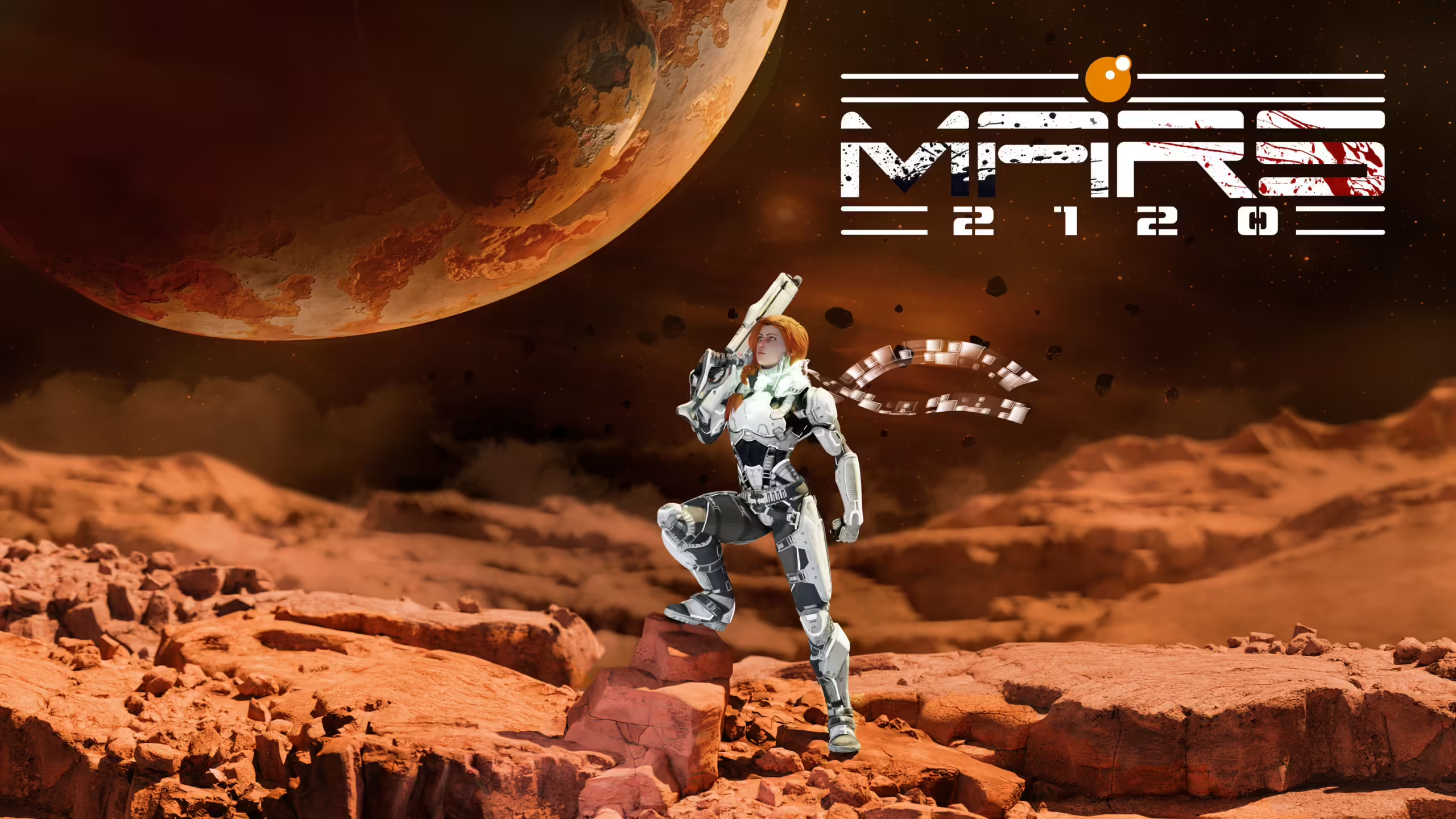It goes without saying that if you’re going to push the boundaries of human experience like we do in Mars 2120, knowledge and science, you’d better be prepared for things going pear shaped. Because they usually will, especially if you’re pushing those boundaries in the remotest locations possible. You know the type, the arctic, under the sea and, if you’ve reached that point, the distant shores of outer space. Those places where rescue, quick or otherwise, is never going to happen. But if you’re quick about it, your last minute notes can help those who come after understand just how stuffed they are!

And in Mars 2120, you’re pretty stuffed. . .
When a rescue mission starts with you crash landing on Mars, you can pretty much guess that things aren’t going to go your way. In fact, you’re now in the same boat as that scientific research facility that went dark and, not only do you have to do some rescuing still, you’re going to need to be rescued yourself. Sadly, the loss of communication isn’t going to be down to a damaged relay and you’re going to wish you’d brought an army. . .
Mars 2120 joins the growing list of Metroidvania games flooding our gaming shores. Where most in the genre take their cue from Castlevania, Mars 2120 is far more firmly seated in the Metroid mold. The basics of the genre are here: Interconnected labyrinthine biomes, exploration locked behind new abilities and a constant flow of movement and combat upgrades. The genres basic gameplay elements are solidly deployed across the game world with plenty of combat and platforming to keep you engaged as your journey takes you from the sterile, white halls of the facility to a lush, underground jungle.

Your move set, as well, is familiar with double jumps and dashes to get you from A to B. Combat is primarily projectile based but you do have a melee attack that allows for execution of basic combos depending on input direction. The game throws in an elemental core system to spice up combat and navigation. Each core you pick up lets your gun morph into three different weapon types: an assault rifle, shotgun and flamethrower.
Each is primed to a different element type: electricity, ice and fire. Each core brings some new upgrades to the table, such as travelling through power conduits or dashing through enemies to leave a trail of damage behind you. As well, this system lets you open up new paths through the base with locked doors or blocked-up areas. Some of the trickier hidden platforming sections require you to use these abilities in conjunction with some precision moves to get the coveted upgrades held at their end.
Enemies also work with the core system, with them either being strong or weak to a specific element. And like the platforming, some of the best fights are mixing between weapon types quickly.

Core abilities are gained through exploration at specific points, but the ones that buff up your weapons for extra damage or charged shots require some work to get to. One area that Mars 2120’s upgrade system isn’t as friendly is in how you use those upgrades because once you pick them up, you still need to hightail it back to a save point and buy them with the experience you gain from killing enemies. And if you happen to die before you make it to a checkpoint or save station, you’re going to have to go and collect them all over again.
The checkpoint system could also use some tweaking. As it stands, if you hit one with a tiny bit of health, it records that state for you. So if you die before killing enough enemies to replenish your health – as they drop health orbs on death – or make it to a save station, you’ll respawn at that checkpoint with the same tiny bit of health and respawned enemies. Which can be quite a pain.

Visually Mars 2120 is a good-looking game with an interesting protagonist design. The early outpost sections, with their clinical white halls and metallic floors, bring to mind Metroid: Dreads opening areas and the overall 3D environments are nicely detailed. I loved what seemed like a flowing scarf billowing out behind our heroine and the changes to her outfit as you swap between cores. Some effects, such as the spouts of water that you can freeze, don’t look quite as convincing up close, but the game’s art direction is strong.
The cinematic boss fights and environmentally based action moments give a nice sense of scale and drama to the proceedings. While it’s clear that Mars 2120 doesn’t have a massive budget behind it, the developers have done a great job of making a 3D Metroidvania that not only looks nice, but runs smoothly and is easy to control as well.
Instead of truly innovating in the genre, Mars 2120 uses tried and true mechanics to tell a fun, pulpy adventure that got better the further into its world I delved.
Mars 2120 Trailer
Read more awesome reviews >>here<<.








You must be logged in to post a comment.